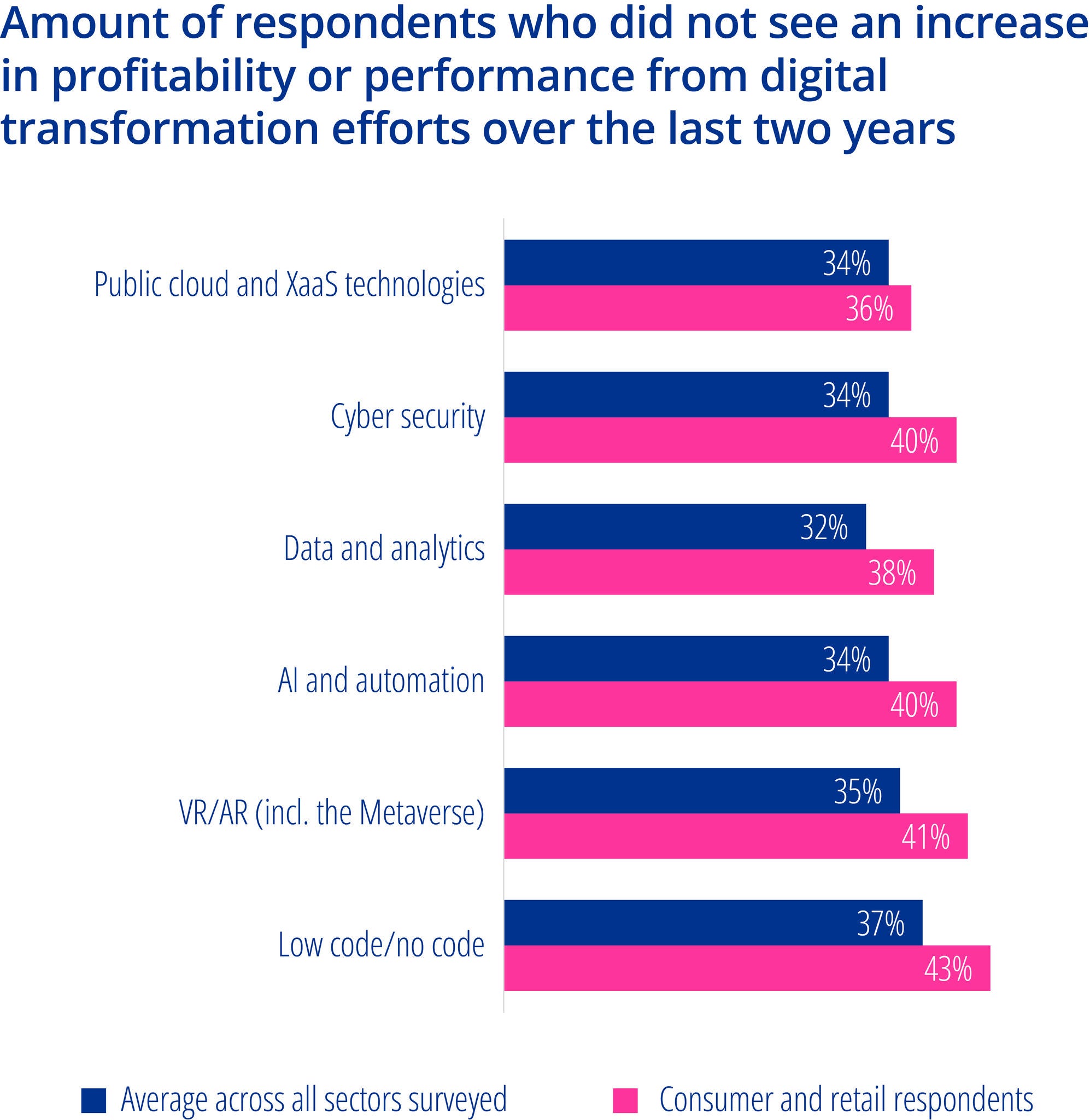Employee productivity is one area where the consumer and retail sector has successfully generated value through digital transformation. Over half (58 percent) of consumer and retail executives surveyed say their digital transformation initiatives have beaten expectations in this area — 7 percentage points higher than the average across all sectors surveyed. This is a valuable return: higher productivity is likely to produce faster responses to customer queries, which can remove friction from shoppers’ experiences.
Increased employee productivity can also offset any reduced output caused by the sector’s high employee attrition rates, according to Ganga. As seen in the research, consumer and retail executives are less confident than all other sectors surveyed in their ability to enhance employee satisfaction and wellbeing using their current tech stack. Martin Sokalski, Consumer and Retail Technology Leader at KPMG in the US, says that this could be a result of increasingly complex ecosystems and legacy tech debt that retail staff often have to navigate through.
“Employees across the consumer and retail industry are being asked to handle increasingly disjointed platforms and poor-quality, siloed data,” says Sokalski. “These become intense pain points and cause burnout for employees trying to fulfill the expectations of their daily role while balancing business and functional aspirations for greater technology enabled insights and innovation.” Flaws in tech stacks often block staff from focusing on more meaningful, value generating activities that will benefit the organisation and its customers.
That’s why Sokalski believes it’s important for organisations to do anything they can to augment their workforce with the right tools and assets. “As these efforts can tremendously improve both employee wellbeing as well as the outcomes for the organisation overall,” Sokalski explains.
Modern technology architectures and solutions have the power to boost productivity and, more importantly, have ability to disrupt the paradigm of ways of working. “For example, leveraging AI to augment the daily tasks of a finance analyst has the potential to revolutionise that employee’s working life. Benefits including – improved workflows, outcomes, productivity, engagement, and overall wellbeing of the individual employee. At scale, these sorts of tech upgrades can have a major impact on organisational cultures overall,” says Sokalski.
Tracking and measuring the performance of digital transformation initiatives can help to minimise tech-induced employee and customer frustration levels. “Once you’ve built a culture that is able to assess whether a project or innovation is delivering value [to your employees and or customers] and adapt accordingly, then the people piece will sort itself out,” says Ganga.






